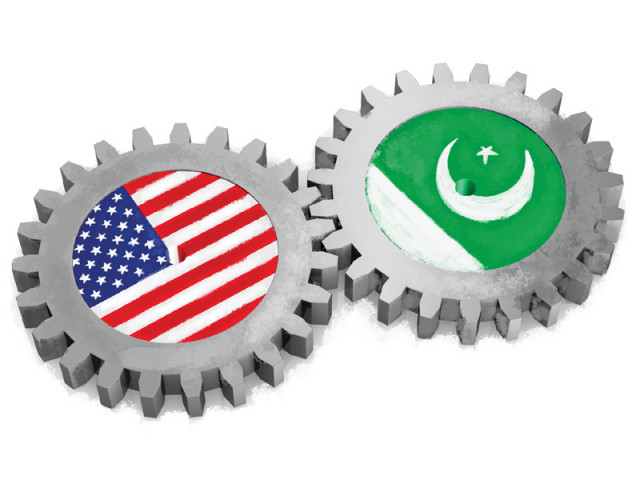If drones are so effective, why don’t they target the Haqqani Network
Speakers urge Pakistan to resolve internal divisions in policy formulation.

If drones are so effective, why don’t they target the Haqqani Network
If drone strikes are effective in eliminating terrorists in Pakistan, why is the United States reluctant to use them against the Haqqani Network, an insurgent group accused of all recent terrorist activities in Afghanistan?
Former ambassador Ayaz Wazir seemed keen on extracting an answer from eminent scholars, but to no avail. Political analysts, commentators, scholars and journalists gathered at the Jinnah Institute on Thursday under the 6th discussion on Pak-US relations.
Among the speakers were renowned author Ahmed Rashid, award-winning journalist Zahid Hussain, United States Institute of Policy South Asia Adviser Moeed Yusuf and visiting American scholar Rebecca Goetz.
Wazir, who was among the audience, challenged one of the speakers’ claims of terrorists being given sanctuaries on both sides of the Pak-Afghan border, asking the speaker to name a single tribe involved in such activity. However, he received only silence in response once again.
“They cannot answer these questions, in fact, no one can,” Wazir later told The Express Tribune when asked why he thought he didn’t get his answers.
However, replying to a part of Wazir’s question, Rashid said drones had been operating with the consent of the previous and present governments.
Discussing Pakistan’s policy towards the US and Afghan endgame, he said Pakistan’s internal crises have created divisions in policy formulation and need resolution. “Essentially, countries need to stand on their feet and need to dispense with big powers, increase trade and take part in globalisation,” he remarked.
He expressed the need for an honest broker in the conflict, suggesting that the European Union could play the role as all other players — Pakistan, US, Iran, India and Central Asian states — were only looking at their own interests.
He added that the new generation of Taliban is not in favour of war neither does it have funds to support it. “They had a realisation that they needed political partnerships and they are willing to negotiate with the US and Afghan government,” he said, blaming Pakistan’s army and intelligence agencies of obstructing such efforts in the past.
Moeed Yusuf said that a solution in Afghanistan cannot be achieved until all regional players pursue a common goal of sustainable peace in the country. “Every actor says it wants a solution, but doesn’t want the actor it doesn’t like being made a part of it,” he noted.
Questioning the policies pursued in Afghanistan over the past decade, Zahid Hussain said, “If Pakistan is living in a state of denial about itself, what about the US? Admittedly, Pakistan has made mistakes, but does that mean the blame for a war fought by 11 armies be laid at Pakistan’s door?”
Criticising the mainstream media, Rebecca Goetz said Pakistan is negatively portrayed in the US, where people are terrified by images of Pakistan as the “most dangerous country in the world”, as quoted by Time magazine.
This, she said, is the leading cause towards support for drone strikes and unfavourable immigration laws for Pakistanis moving to and living in the US.
However, she added that a new libertarian nexus is now emerging which is asking tough questions on US policy in the region.
Published in The Express Tribune, July 14th, 2012.



















COMMENTS
Comments are moderated and generally will be posted if they are on-topic and not abusive.
For more information, please see our Comments FAQ